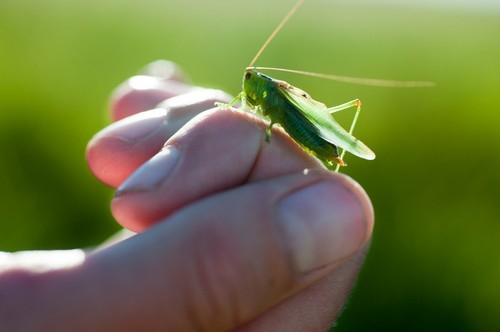First you need to deal with key concepts. Cruelty is intentional harm, and the baby in 3-4 years is not capable of it: he does not understand what makes the bug hurt. If he inflicts pain on her, then it is definitely unintentional.
However, this does not mean at all that the child should be allowed to create ugliness. Conducting outreach is extremely necessary, because only with your help the baby will understand that this should not be done. It is equally important to understand what aroused such a “passion” in a child: pure curiosity or a psychological problem.
Many parents are horrified when they see with what enthusiasm the baby crushes an ant with a shoe or tears off a grasshopper’s legs. However, experts say: to interpret such behavior as a manifestation of cruelty is fundamentally wrong.
Young naturalists
Children very often show a purely research interest in insects. They want to see what’s inside the beetle, and seek to “disassemble” it into parts, like a typewriter or a doll. And there is no need to look for any malicious intent in this. The kid does not “destroy all living things”, but simply thinks that the beetle is not designed like us, and it does not hurt. Another motive that a child can be guided by is to understand the issues of life and death.
For the first time, a baby thinks about these concepts at 4−5 years old, albeit at his own level. To realize their little one can only in a playful way, and for this he needs a good example. And it so happened that for the role of experimental children most often choose insects. When a child slams a fly with his palm, he checks whether she can recover after that and fly or not.
It happens that a child shows “cruelty” when he feels himself cruel and evil. He may feel such feelings if his parents constantly tell him about it. The desire to “justify” the words of adults can take hold of the baby.

Hidden motives
Sometimes children start such an unpleasant “hobby” exclusively for the company, for example, if they really want to be like everyone else. By the way, such behavior is more often characteristic of timid and shy babies, because they mostly feel their helplessness. Such children should be taught to be brave and confident.
Although some children behave insects unceremoniously for completely different reasons. For example, in this way, babies can demonstrate their strength and power. Usually this need is experienced by a child with very strict or authoritarian parents. Feeling constant pressure from adults, he seeks an affordable way to “let off steam”. Insects fall under his hot hand because they can’t fight back. It turns out that the child unconsciously copies the model of parental behavior and begins to oppress those who are weaker.
Having noticed this relationship, adults should change their attitude to the baby, become more patient, begin to be interested in his opinion and give him the opportunity to take the initiative more often. However, it is not always about the parents. Perhaps his peers have a bad attitude towards the baby: they mock, do not accept in their games, being bullied. But even in this case, the child will experience psychological violence and behave in a similar way with those who are weaker than him in order to assert themselves.
If, despite all the exhortations and prohibitions, the child continues to torment insects, you should consult a psychologist. Perhaps such an obsession has deeper reasons and the baby needs the help of a specialist.
Responsiveness
In any scenario, parents should behave the same way: there is no need to dramatize the situation and shout that the baby is acting cruelly and that he is angry and heartless. The baby will still not be able to understand what his fault is. It’s better to tell him that the bug is alive and it can also hurt.



